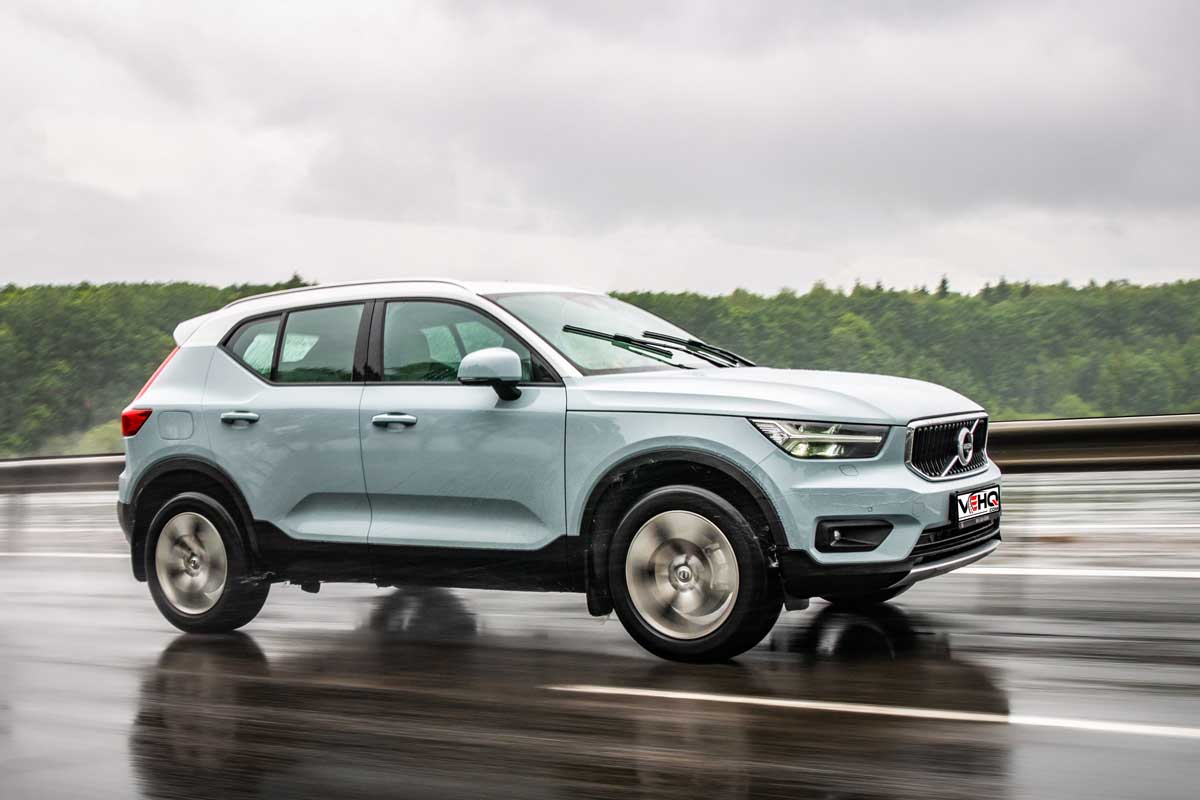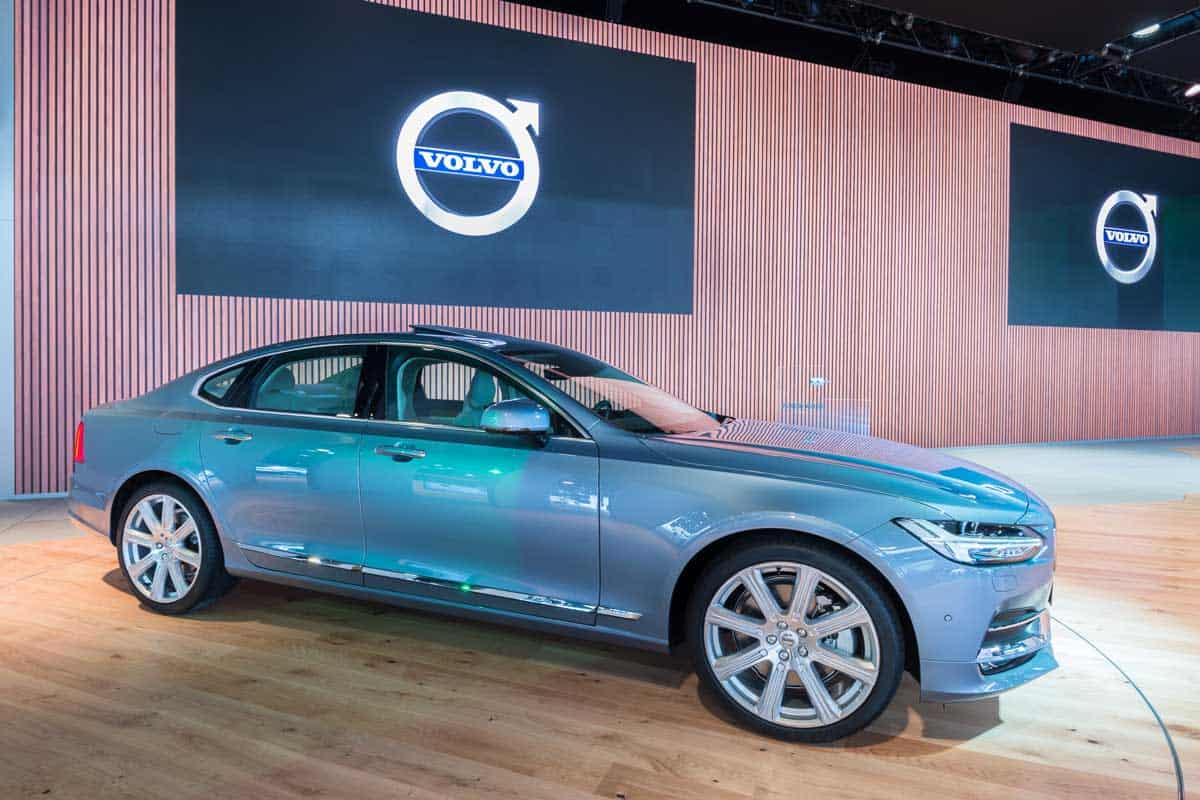![Volvo S90 global debut car at the North American International Auto Show, Where Are Volvo Cars Made? [And Other Interesting Tidbits]](https://vehq.com/wp-content/uploads/2020/05/Where-Are-Volvo-Cars-Made-And-Other-Interesting-Tidbits-1.jpg) Volvo has been producing cars well known for safety and reliability for nearly one hundred years. Most people are familiar with Volvo, but there are many things that people don't know about the brand. One of the biggest questions people have is: where are Volvo cars made? We've done some research to help you quickly and easily learn more about Volvo.
Volvo has been producing cars well known for safety and reliability for nearly one hundred years. Most people are familiar with Volvo, but there are many things that people don't know about the brand. One of the biggest questions people have is: where are Volvo cars made? We've done some research to help you quickly and easily learn more about Volvo.
Volvo, founded and headquartered in Sweden, currently manufactures cars in several plants around the world. These plants are located in six countries:
- Sweden
- Belgium
- Malaysia
- China
- India
- The United States
So, though many people often associate Volvo with Sweden, it is truly a global brand with manufacturing operations on three continents. This helps Volvo more easily deliver its product to the entire world.
We've taken the time to answer some of the most common questions about the Volvo brand, their cars, and more. Keep reading to find out more about this well-known car company.
Volvo's Manufacturing Operations
Since the company was founded, Volvo has manufactured cars in Sweden. However, it has expanded its reach across the globe over the years. At various points, manufacturing has happened in Sweden, Canada, Belgium, the Netherlands, Malaysia, Thailand, China, India, and the United States.
Currently, Volvo cars are produced in the six countries we have already listed. The ability to successfully manufacture cars across the globe has enabled Volvo to grow its brand and presence. Today, there is greater access to Volvos because their cars are made in strategic locations around the world.
In some cases, these plants specialize in manufacturing only a select few vehicles. For example, the South Carolina plant currently produces the S60, but it will begin producing the XC90, the company's luxury crossover, soon.
Similarly, the plant in Sweden concentrates on specific makes and models as well. This specialized type of manufacturing strategy, which is employed by several car companies, allows the plants to operate more efficiently.
By focusing on only a few makes and models, there is less chance of error. There is also a great benefit in time saved, as there is no need to change production lines for different cars. This helps to reduce costs both for the manufacturer and the customer.
Who Owns Volvo?

Volvo was founded in Sweden in 1927. The company remained Swedish owned until 1999 when it was purchased by Ford Motor Company. Volvo remained part of Ford until 2010 when it was bought by its current owner, Zhejiang Geely Holding (Geely Holding) of China.
Geely Holding is the ultimate decider when it comes to the company's strategy, production, and direction. Geely Holding has helped to encourage continued growth and expansion. Since 2013, Geely Holdings has greenlit the opening of three additional production plants: Volvo's first two plants in China and the company's first plant in the United States.
Despite being purchased by two separate companies within 11 years, Volvo has continued to grow and achieve excellent sales results. Geely Holdings has invested well and committed itself to the continued success of the Volvo brand.
Is Volvo A Swedish Company?
Many people still associate Volvo with Sweden. That is understandable since the company was founded there in 1927 and was run completely by the Swedish until 1999. That's when the company, as we previously detailed, was bought for the first time.
Despite the fact that it is on its second outside owner, Volvo is still a Swedish company. Operating as a subsidiary of Geely Holdings, the company is headquartered in Sweden, and its day-to-day operations are run by President and CEO Håkan Samuelsson.
Mr. Samuelsson communicates frequently with Geely Holdings owner Li Shufu. The two men work together to make the best decisions for the future of the company and to ensure its success. Basically, Volvo is a Swedish company with a Chinese owner.
Though that may seem confusing, this unusual decision-making strategy has helped the company to achieve some of its greatest success. The company that got its start in Sweden nearly 100 years ago has received the support it needs to remain healthy and prosperous.
Are Volvos Good Cars?

But that health and prosperity ultimately hinge on whether or not Volvos are good cars. This is the question that determines the success or failure of any product. If what a company makes and sells isn't believed to be a quality product, the company will not survive.
Volvos have had a long association with safety. The company developed an innovative safety belt solution in 1959 — the original three-point safety belt. Volvo also focused on an interior safety cage for the car's occupants.
Furthermore, the company introduced side airbags in 1994 and curtain airbags in 1998. The company continues to focus on technological innovations and enhancements to improve safety for its customers. Rear collision warning and blind-spot assist are designed to reduce the chances of accidents by Volvo drivers. The commitment to safety has remained a staple of Volvo cars over the years.
Volvos are typically viewed as average in terms of the way they drive, their needed repairs, and in terms of their infotainment system design. While they are not the most reliable vehicle on the market, they are not the worst either.
Volvos are cars that have provided important safety advancements for the automotive industry as a whole and that have continued to be trusted by consumers across the world despite significant transitions in the last twenty years.
The company has focused on safety, worked to improve and streamline manufacturing, and has increased sales and expanded its presence. Volvos are certainly among the most well-known vehicles on the market, and for good reason.
In Closing
This post has aimed to provide you with important information about Volvo: where they are made, who owns them, and whether or not they are good cars. Information about a manufacturer is critical when you are interested in purchasing a new car. If you are looking to find out more about other car manufacturers, please check out some of our other posts:
